You might have heard that the Netherlands is a super sustainable, climate-friendly country — a green warrior’s dream. The truth, however, is that this country still has a long way to go.
The Netherlands has an image of being as green as its ever-lasting fields, but listen, all praise is in need of some reality checks every now and then.
Holland is not always the pinnacle of climate progress you might imagine. In fact, here are nine very unsustainable things going on in the lowlands right now.
1. Have confusing-a** recycling systems
Step one to get any society moving towards a greener future is the good ol’ practice of recycling. It’s well-established, it’s second nature to most people, and it’s really, really easy. Well, to most people, in most places.

However, in the Netherlands, recycling systems vary a lot, and largely depend on where you live (literally, it might even differ from street to street).
In The Hague, for example, paper waste is collected at your doorstep once a month, while Leiden inhabitants have to make the journey to a paper waste collection point.
The Hague requires its people to separate plastic waste from other waste, while Leiden folks don’t have to worry about that (they have a fancy system extracting it after collection).
READ MORE | Recycling in the Netherlands: an international’s guide
In many places, recycling depends on individuals’ willingness to seek out recycling stations, and drag their collected waste there. For busy bees, this is not only hard to achieve, but also tragically easy to forget.
That being said, while confusing rules might be a hassle, the Netherlands is doing pretty well on the recycling front. The little country recycled 56.8% of their municipal waste in 2020, placing them well above average in Europe.
Still, we can’t help but ask how high it could have ranked, if the Dutch system was just a touch more user-friendly and accessible.
2. Contribute towards global deforestation, in more ways than one
Forests are an incredibly important piece in the puzzle of sucking carbon out of the atmosphere. But that’s just the beginning of the story.
Woods, generally speaking, are also key to mitigating the effects related to drought and flood, and maintaining the world’s biodiversity.
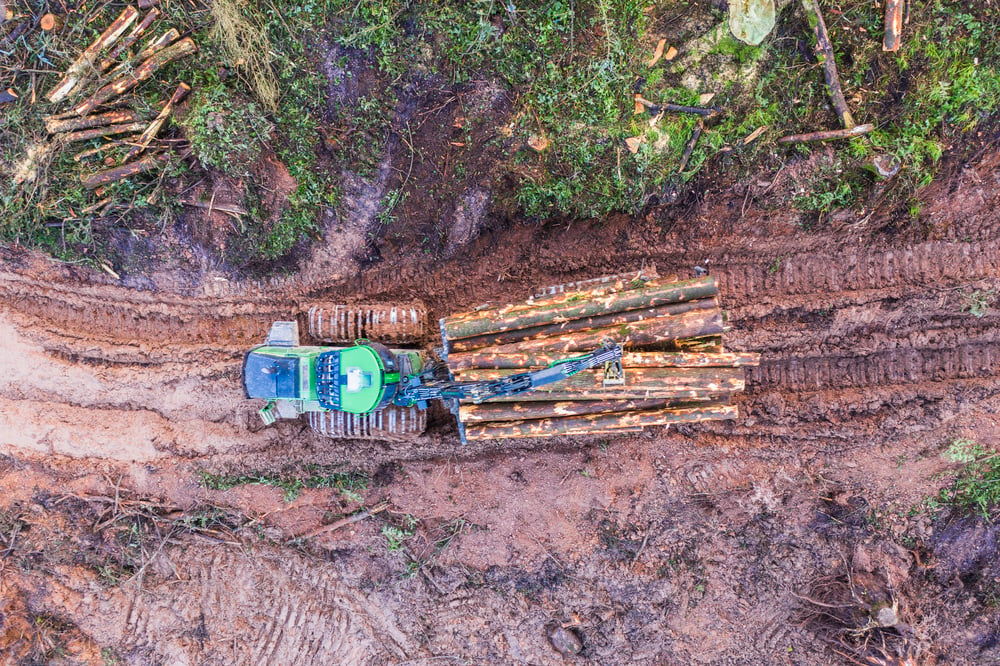
However, between 2001 and 2021, the global tree coverage decreased by 11%. This has been described as a significant climate hazard, brought about by a range of factors, amongst which is wildfires due to climate change, and deforestation related to agriculture.
READ MORE | The 8 greatest forests in the Netherlands for a nature escape
A group of seven European countries are responsible for 80% of the EU’s combined deforestation — and guess which country is a part of this group? The Netherlands.
Not only that: the Netherlands also snatched a spot among the top three countries when it came to deforestation per capita between 2005 and 2017.
In addition, the lowlands is also a huge driver of deforestation abroad (when importing commodities from countries like Brazil), placing them in fourth place in Europe when it comes to CO2 emissions from tropical deforestation. Yikes.
It also doesn’t help much that Dutch pension money is invested in the deforestation of the Amazon, or that the Netherlands is the main hub for the import of soy from South America to Europe — an infamously land-intensive sector.
3. Protest measures to combat the nitrogen crisis
The Netherlands has Europe’s second highest nitrogen balance, meaning they’re contributing greatly to the slippery slope toward ecological catastrophe.
That’s why the Dutch government has promised to slash nitrogen emissions by 50% before 2030. Reasonable enough when faced with a climate crisis of the scale we are today, right?
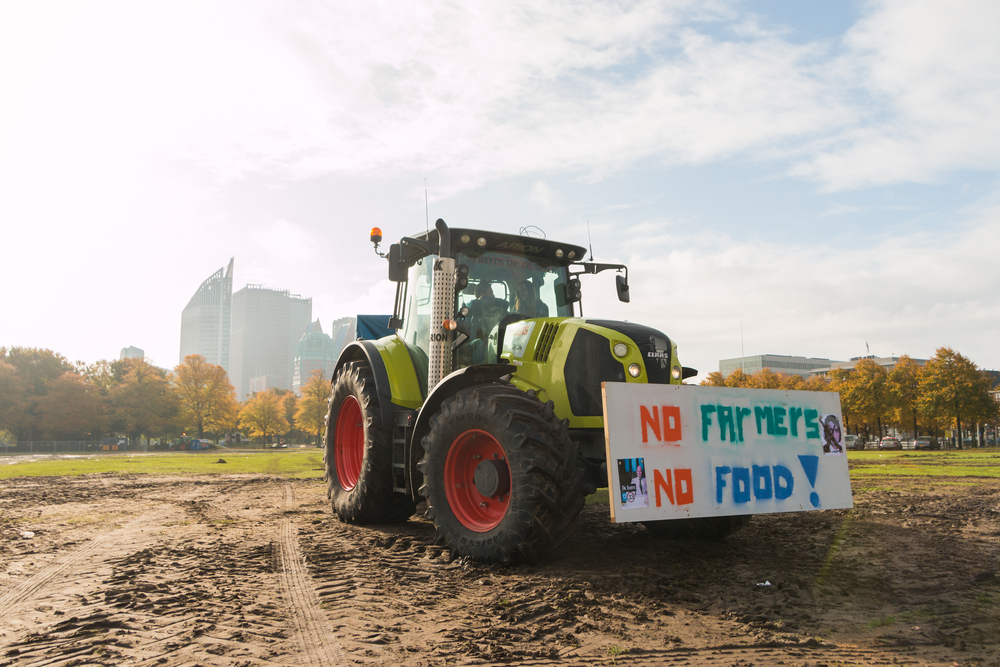
Not everyone agrees, however, with the chosen strategy. Slashing nitrogen emissions will impact Dutch livestock farmers drastically, and they have certainly let their dismay be heard.
READ MORE | The easy guide to the Dutch nitrogen crisis, farmers’ protests, and more
With over 100 million livestock, the Netherlands is often considered one of the world’s main food producers — a fact the Dutch farmers know all too well.
That’s why, in previous years, they’ve been protesting the hell out of the Dutch government’s decision to limit nitrogen.
4. Exist as one of the world’s top meat lovers
Speaking of livestock, it’s probably no surprise that the country which invented the frikandel is also Europe’s biggest meat exporter, and the world’s fifth largest beef exporter.
It’s also no secret that meat production in general, and beef production most of all, is one of the most harmful industries in the equation of fighting climate change.
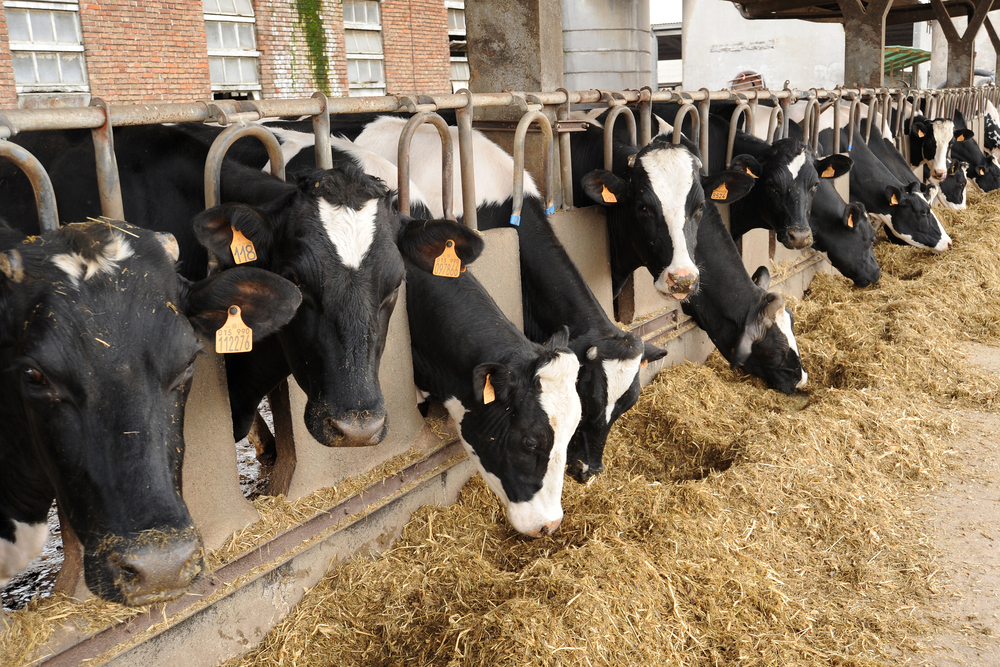
That being said, the Netherlands is not the worst country when it comes to actual meat consumption, lying at about 76kg of meat consumed per person annually.
That’s about the average in Europe, but if you think that sounds like too much, it’s because it is — from both a global and an environmental perspective.
Limiting the consumption of meat (and dairy) is the most impactful change you can implement in order to reduce the carbon footprint of your diet.
Yet Dutch people are lagging behind many similar European populations when it comes to adopting a full-on vegetarian diet (what about the bitterballen and kaas?).
5. Lag far behind on renewable energy consumption
You might have heard that the Netherlands generates the most solar power in Europe, or that the country has wind turbines as far as the eye can see.
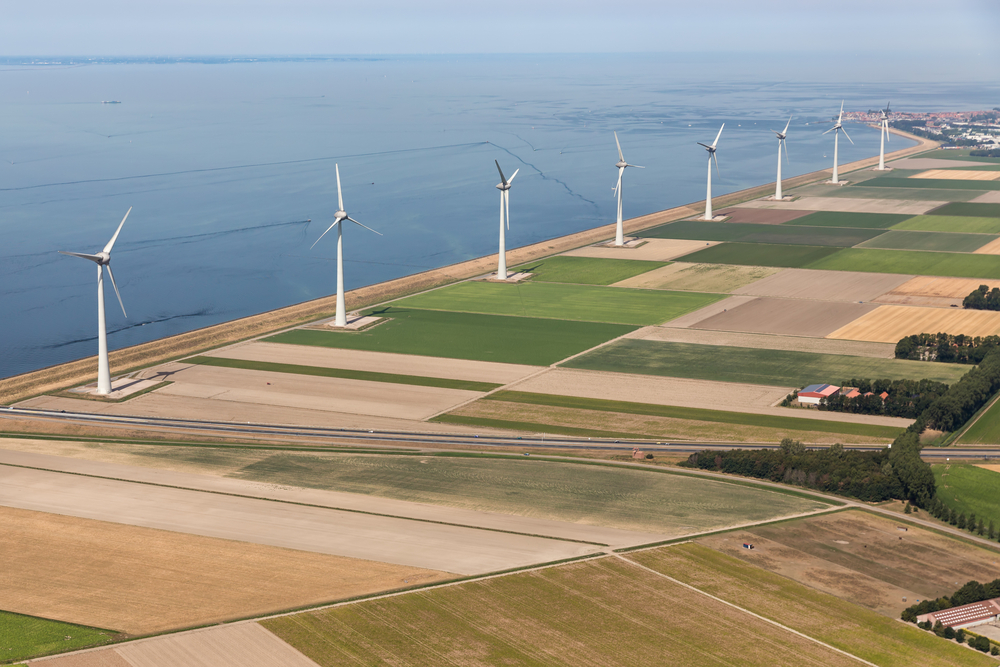
All this is true, of course, but the rosy-red (or shall we say, green) fairytale of sustainable Dutch energy is sobered by the fact that Dutch people consume surprisingly little renewable energy themselves.
READ MORE | Renewable energy in the Netherlands: everything you need to know
The lion’s share of Dutch energy consumption is still fueled by natural gas and oil — so much so that the Netherlands had the third-lowest ratio of renewable energy consumption of all IEA countries in 2018.
Although the share of consumers opting for a green alternative is rising, the Dutch lag noticeably behind when compared to many other European countries.
6. Scooters everywhere, for no reason
The Netherlands is, famously, the land of bikes. And why wouldn’t it be?
The country is as flat as its pancakes, small enough for all its cities to be reachable by virtually any means of transportation, and has streets safe enough to cater to even the most chaotic cycling beginner.
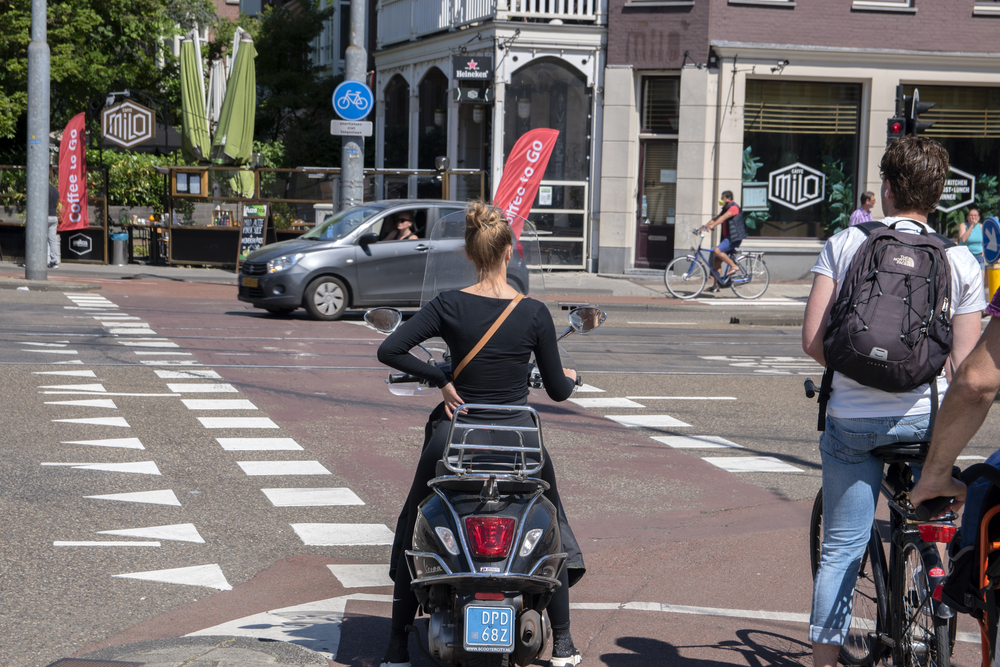
But if you’ve spent more than a few days in any Dutch city, you’ll know that the humble bike is far from everyone’s favourite ride of choice.
We’ll give you a hint, it’s like a bike, but much louder and far more damaging to the environment.
More Dutch people than you’d think love to opt for a motorised scooter, even for short trips that are highly bikeable. Why not just bike, when the time and effort saved is so minimal?
READ MORE | If the world biked like the Dutch, CO2 emissions from cars would drop by 20%
The fact that Dutch bike paths are full of scooters is as confusing as it is annoying — both from an environmental and road safety perspective.
That being said, Dutch biking culture is among the best in the world, so the scooter issue might not be worth our worries (yet).
7. Produce tulips like there’s no tomorrow
Don’t worry, we’re not about to call for a nationwide tulip ban. The Dutch would have a collective heart attack. Still, that doesn’t take away from the fact that the Dutch tulip industry is anything but a climate enthusiast’s dream.
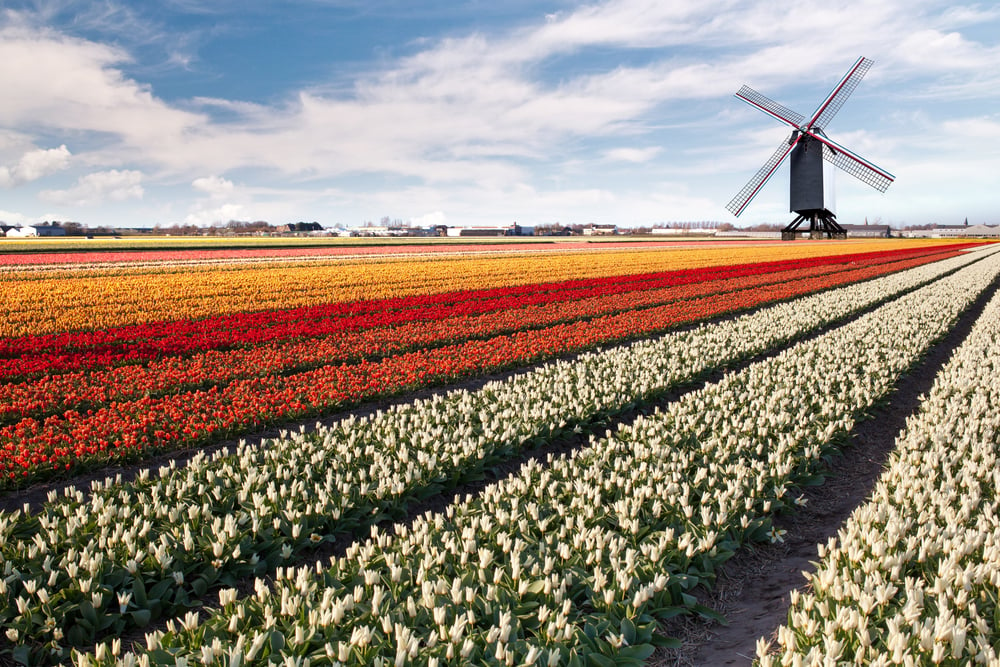
Firstly, although a delightful bouquet of tulips is a lovely gift, it goes without saying that the practice of growing massive amounts of plants, only to cut them down and leave them to die on a kitchen counter, is rather wasteful.
Secondly, the cold, cloudy, and windy climate in the Netherlands sometimes creates a need for greenhouses in order to produce flowers for the rest of the world.
These often require the use of highly energy-intensive C02-producing machines, with heating systems powered by natural gas.
Finally, even without greenhouses, the Dutch flower industry is also very water-intensive, and makes use of enormous amounts of (in many cases) harmful pesticides.
These pesticides are a danger to natural pollinators, soil quality, water quality, and the overall sustainability of the Netherlands’ world-famous flower industry.
8. Throw even more planes up into the air
The biggest airport in the Netherlands (and one of the busiest in Europe), Schiphol, is currently moving ahead with plans to build a new terminal.
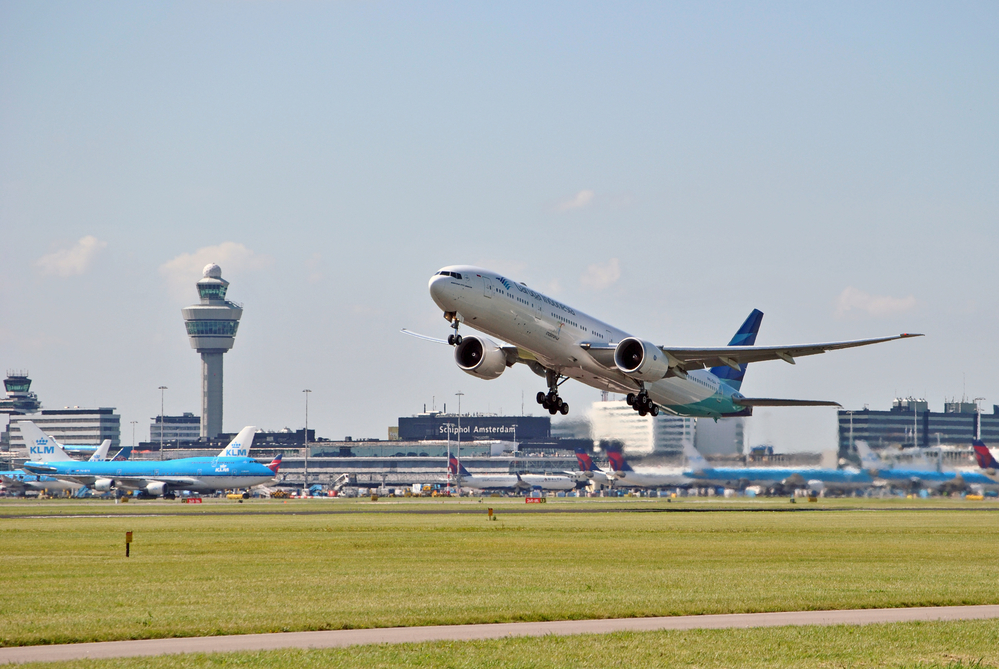
This will make space for 14 million extra passengers taking off into the skies every year. We can’t help but wonder if the climate goggles were left at home during the brainstorm about this new Schiphol terminal.
In spite of this, Schiphol never misses an opportunity to brag about its great sustainability goals and climate-wokeness.
READ MORE | Schiphol’s downsizing plans scrapped due to pressure from US and EU
For example, it boasts that its buildings are wind-powered, and that it aims to be a “no-emissions airport” by 2030. That does not, however, take away from the fact that another Schiphol terminal means a lot more air traffic.
And a lot more air traffic is unquestionably moving in the opposite direction of where we should be heading, according to the Dutch (and most other) government(s).
They even told Schiphol to significantly limit the number of flights per year, for environmental reasons — something isn’t adding up.
9. Use plastic. Everywhere.
One aspect of life in the Netherlands that has surprised many newcomers lately is the amount of plastic in Dutch grocery stores.
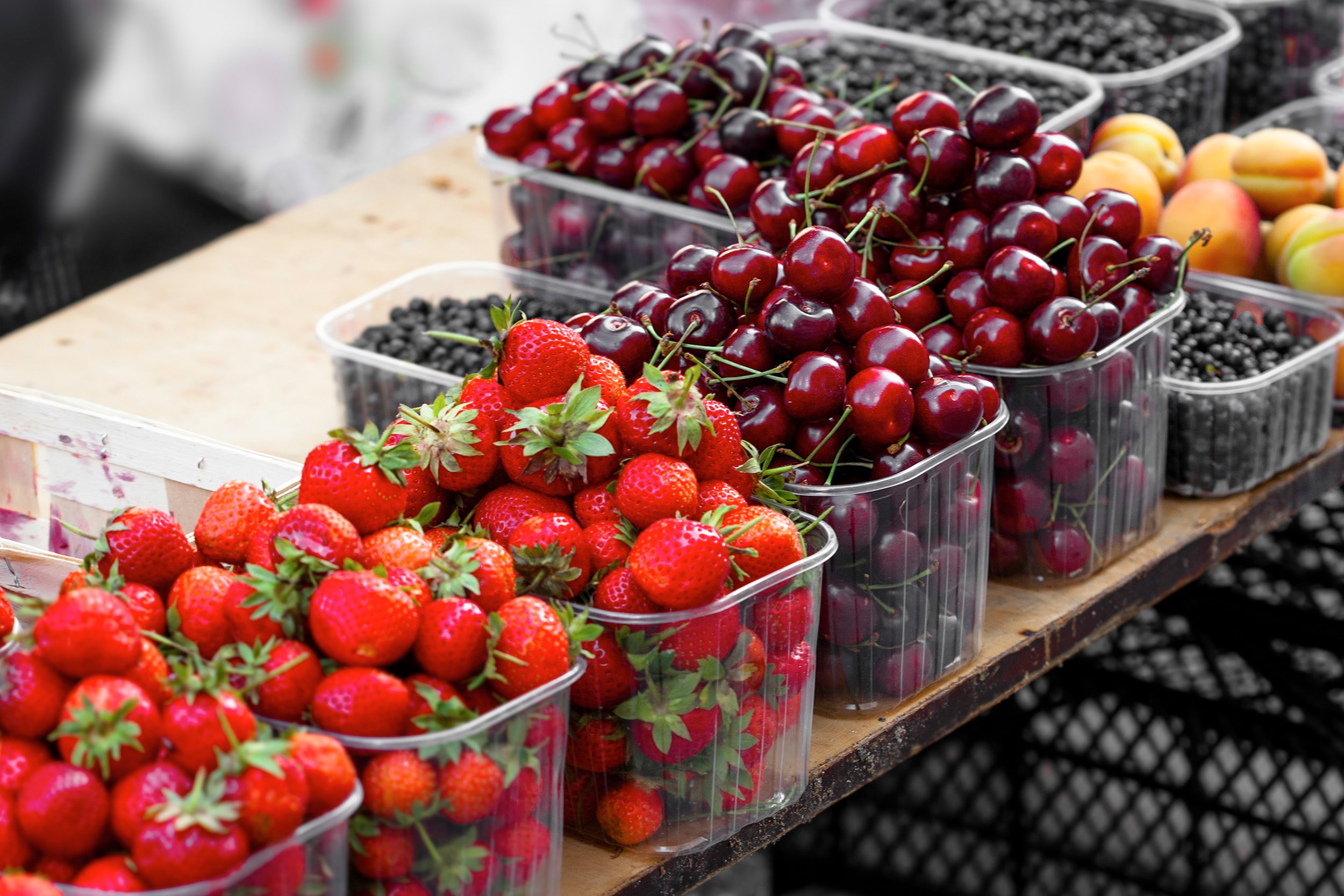
Although the Netherlands is not the worst in many aspects when it comes to plastic pollution, it is hard to ignore the piles of plastic used for unnecessary protection of produce. Most of which ends up in the world’s oceans — despite the consumer’s attempts and intentions of recycling.
READ MORE | Hey Dutchies, we need to talk about plastic waste
Further, even though the Netherlands has a ban on free plastic bags, virtually no Dutch stores provide plastic-free bag alternatives.
If you forget to pack an extra tote for your after-work grocery shopping, most stores in the Netherlands will make you choose between a 20-cent plastic bag, and carrying all your food home in your arms.
For most consumers in a time pinch, the choice is pretty simple.
The Netherlands is doing a lot in the global fight against climate change, but the sad truth is that there’s little time to rest on the laurels. More effort is needed in many aspects of Dutch society, despite its reputation for being a green powerhouse.
What do you think: does the Netherlands deserve its title as a sustainable superpower? Tell us your opinions in the comments below!






Good article with good information. Yes, the Netherlands needs to be more vigilant in the fight against global warming. I would add to your article cigarette butts. Everyone, Dutch or not, should do something about discarding cigarette butts on the streets. They end up in the oceans. Cigarette butts are the single greatest source of ocean trash and are harmful to marine life and to the overall milieu. Cigarette filters are composed of 95% cellulose acetate, a form of plastic, and can take up to 10 years to decompose. Butt waste is not biodegradable: Filters are non-biodegradable, and while ultraviolet rays from the sun will eventually break them into smaller pieces, the toxic material never disappears. No buts about it!
Correction: when you say that NL is the largest meat exporter in Europe, that is not exactly true. The issue is that anything going out of NL through the port of Rotterdam is counted as “export…” and this is a distortion. It also applies to many agricultural products. So, if the meat is actually produced (raised and slaughtered) in France, Belgium or Germany, for instance, but sent to the US (or anywhere else) passing through NL it might be counted as “Dutch export.” When you compare the volume of agricultural production in NL and the volume of exports, you might find that NL exports more than it produces, regarding certain products.